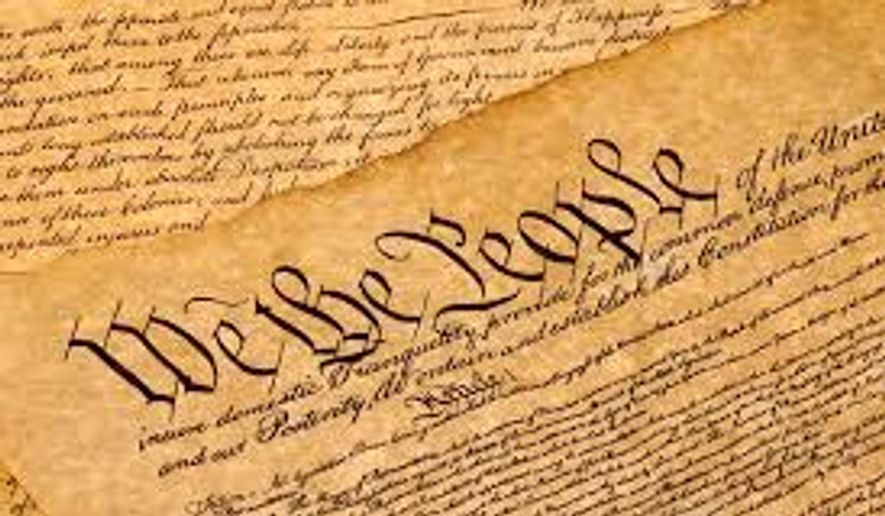President Obama’s insistence that Senate Republicans accede to his demands and confirm Judge Merrick Garland to be a new Justice of the Supreme Court directly contradict a simple fact of American political life - that more recent elections can (and often do) cancel the policy results of earlier elections.
“Elections have consequences, and at the end of the day, I won,” the President haughtily declared back in 2009, a mere three days after being sworn into office.
Americans, of course, understand that elections do have consequences, and at the end of the day, that’s precisely why voters gave Republicans a majority in the House of Representatives in 2010, and then in the Senate in 2014. The consequence of both the 2010 and 2014 elections is that Republicans in both the House and Senate can and will serve as a necessary check on President Obama’s sweeping agenda - including his demand to break with almost a century of tradition to confirm a new Supreme Court Justice for a vacancy that occurred in a presidential election year.
Let’s back up.
Weeks after Justice Antonin Scalia passed away, President Obama nominated Merrick Garland to fill the vacancy. Making a nomination is certainly within his Constitutional authority, and no one has challenged that.
Senate Republicans, for their part, are now exercising their Constitutional authority by refusing (rightly and prudently) to hold a confirmation hearing, or a confirmation vote, in an election year.
The Constitution bestows upon the Senate the responsibility to provide advice and consent on judicial nominees; it does not require that the Senate serve as a rubber stamp on the president’s nominees. And the right and responsibility to “consent” necessarily includes the right and responsibility to not consent in certain circumstances.
Senate Democrats are now pressuring their Republican colleagues to move quickly to confirm Garland. Hypocrisy, thy name is Reid, and Schumer, and Biden! As recently as George W. Bush’s presidency, leading Democrats were singing a different tune on this issue. Back then, Democratic Sens. Pat Leahy, Chuck Schumer, Dick Durbin, and Harry Reid were quite vocal about the Senate’s prerogative to deny confirmation hearings to President Bush’s judicial nominees. Even in President Bush’s first year in office, Senate Democrats were already resolutely refusing to hold hearings for many of President Bush’s judicial nominees to the lower courts.
That President Obama would like to alter the makeup of the Supreme Court in a lasting way should come as no great surprise. After all, President Obama has clashed frequently with the Supreme Court over the years, and it would, no doubt, be a great relief to have a more approving Court during his last months in office and beyond - who knows how far into the future some aggrieved citizen will sue the federal government for overreach begun during his final months in office?
Over the years, the Supreme Court has curtailed major aspects of President Obama’s regulatory agenda, from the implementation of certain parts of Obamacare to his never-ending environmental regulatory schemes. Replacing Justice Scalia with a liberal Justice who shares President Obama’s worldview would dramatically change not only the makeup of the Court, but would also dramatically change President Obama’s ability to continue implementing his agenda over the coming months and, in fact, years.
While conservatives’ objections to a confirmation hearing are centered on the impropriety of holding a confirmation hearing and vote during this intensely political election year, it is nevertheless worthwhile to review Merrick Garland’s record. Liberals have made the claim that Merrick Garland is a benign moderate, but ask yourself this simple question: Would the Left be fighting so hard right now to get a mere moderate on the Supreme Court?
Even a cursory glance at his record blows a hole in the theory that Judge Garland is a moderate. On the foundational constitutional issue of the right to bear arms, Garland shares President Obama’s hostility to the Second Amendment - Judge Garland voted to uphold Washington D.C.’s strict anti-gun law, even as the Supreme Court struck it down as unnecessarily burdensome. During the Clinton years, Garland even voted on the D.C. Court of Appeals to uphold the Clinton Administration’s illegal gun registration database. Both instances signal a worrisome tendency on Judge Garland’s part to trample the Second Amendment.
According to an analysis in The New York Times, the addition of Judge Garland to the Supreme Court would move the center of gravity of the court further to the left that at any time in the last half century. No wonder President Obama is impatient for the Senate to hold a confirmation hearing and vote.
On numerous occasions, the Constitutional separation of powers built into our system of government has been a significant source of frustration to President Obama. But that frustration-inducing check on executive power is by design - it is not, as President Obama and the Democrats often argue, a flaw within the Constitution.
Elections, like the system of checks and balances, are another built-in protection against an overreaching executive. November will be here before we know it, and Americans will have the opportunity to choose the next president, who can then nominate someone to fill this vacancy. Senate Republicans should be applauded for ensuring that Americans are given the opportunity to weigh in on this decision on Election Day.




Please read our comment policy before commenting.